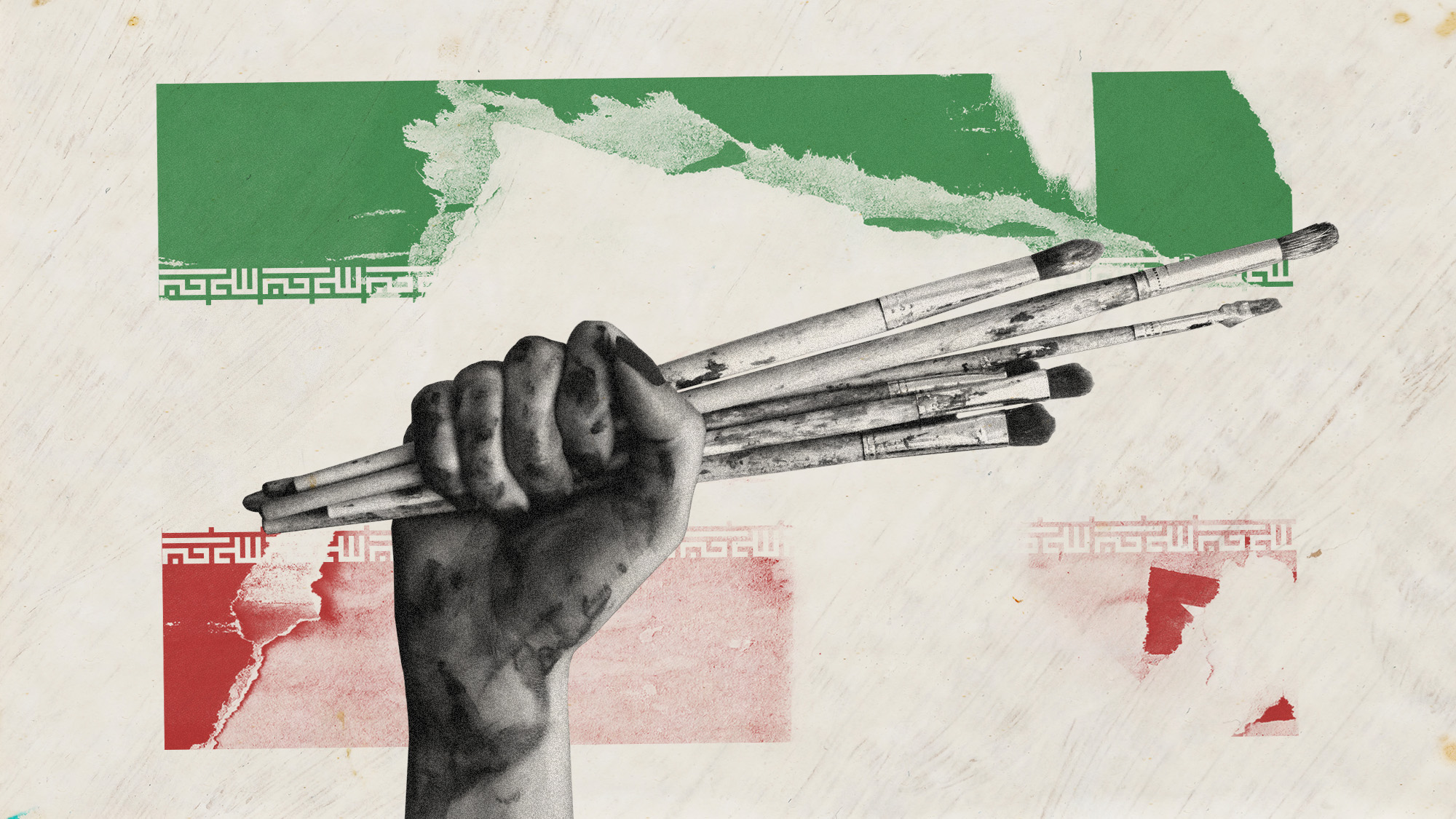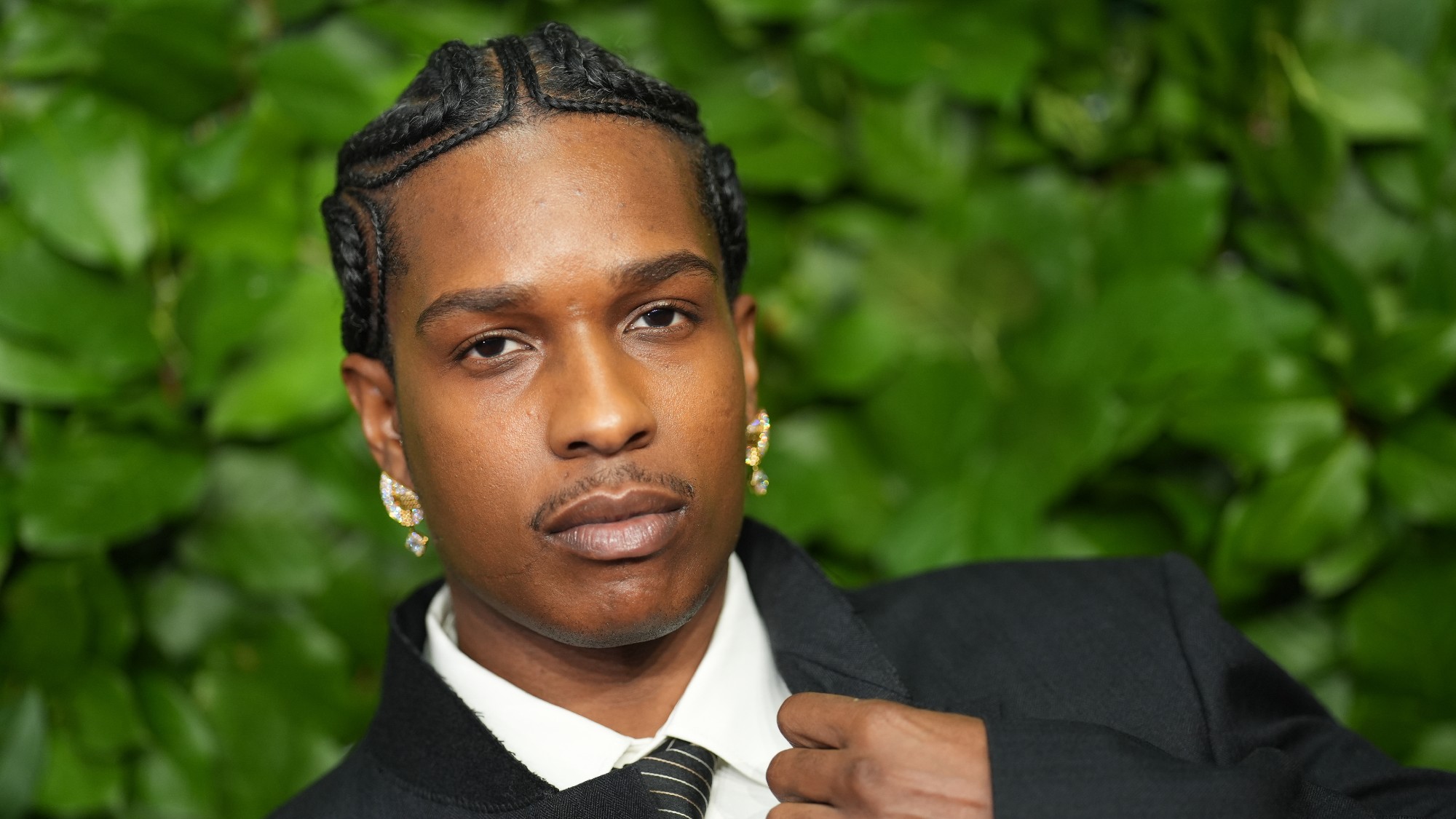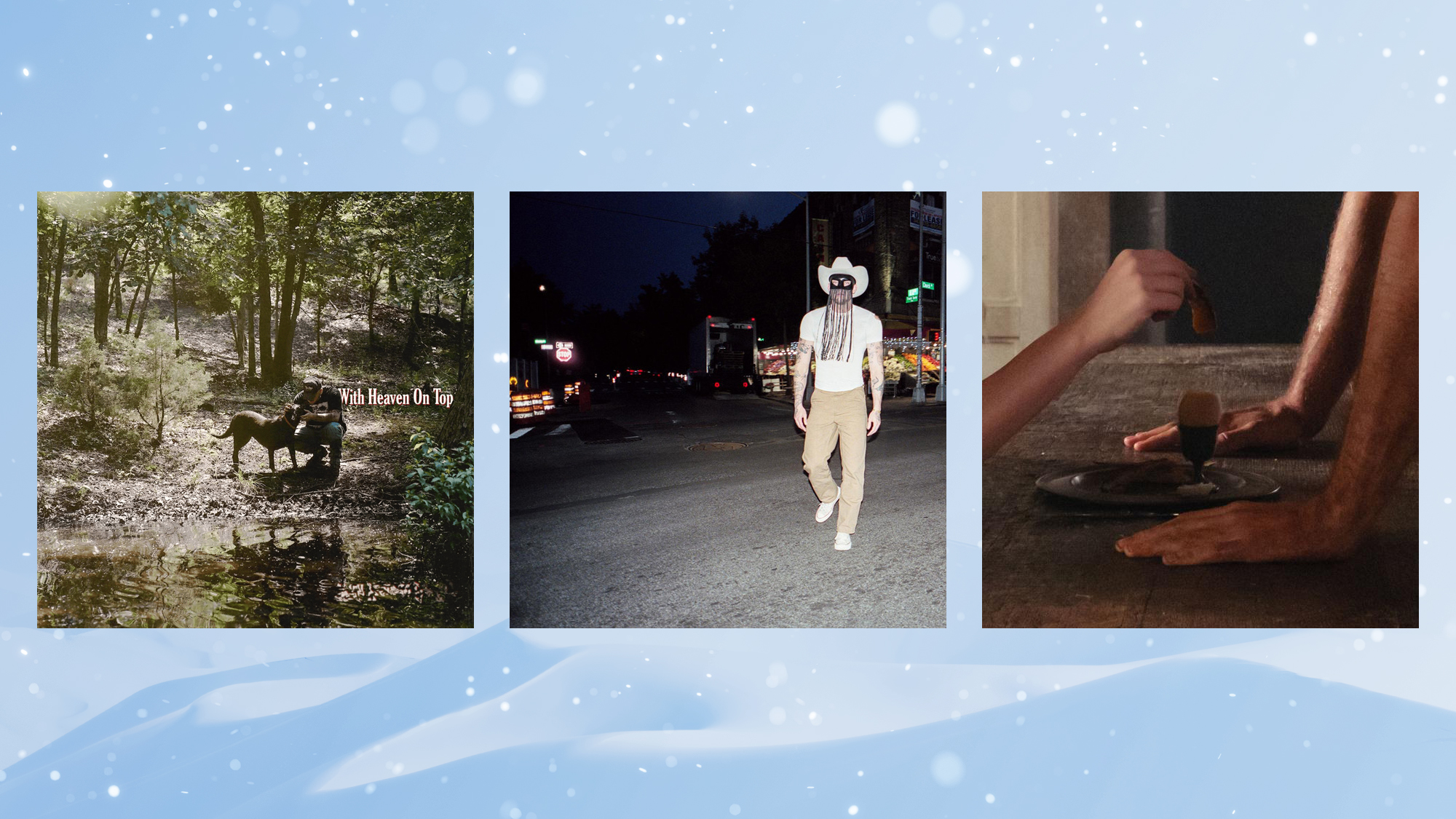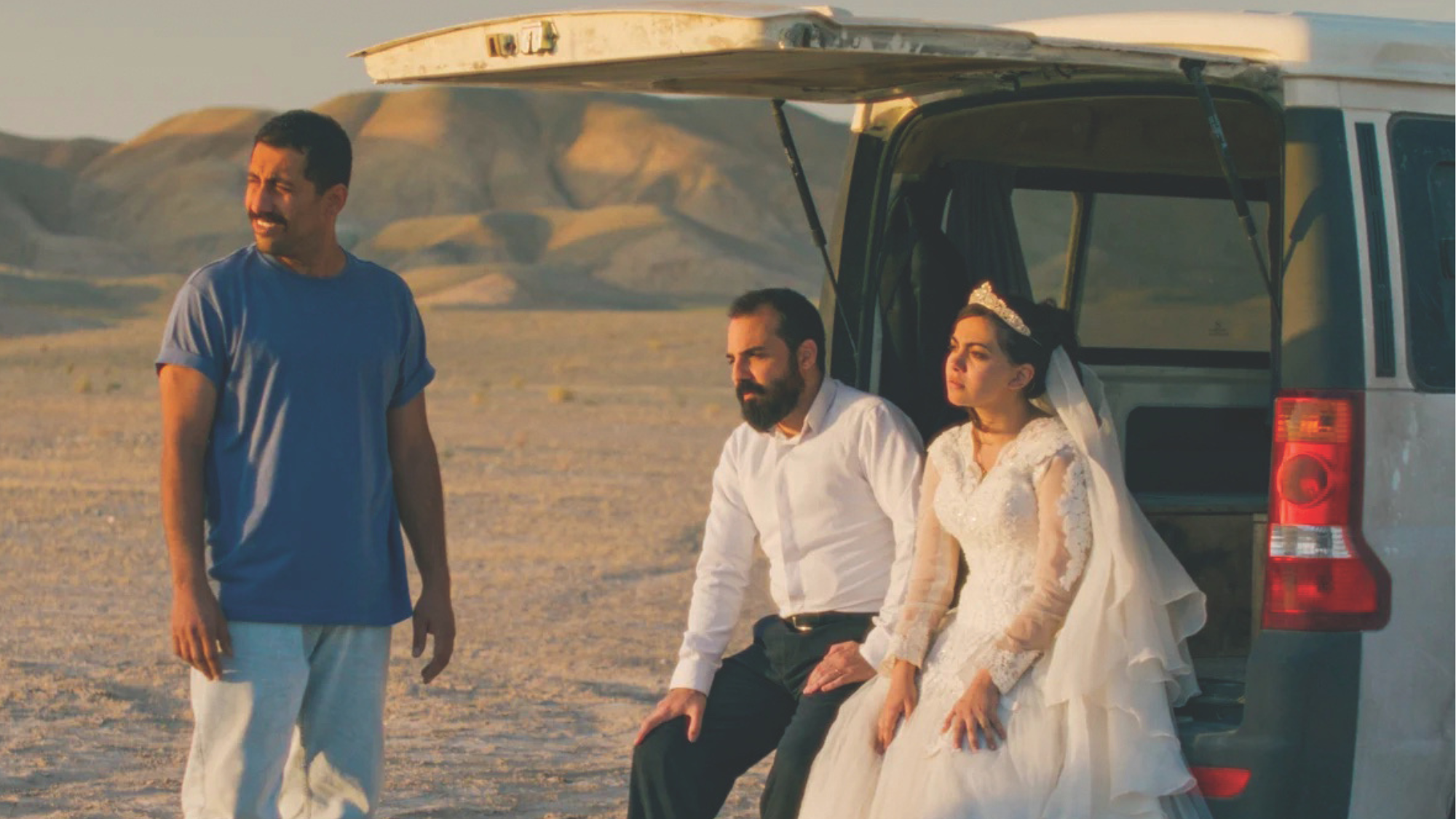Art and protest in Iran
Regime cracks down on creatives who helped turn nationwide Woman, Life, Freedom protests 'into a cultural uprising'

A free daily email with the biggest news stories of the day – and the best features from TheWeek.com
You are now subscribed
Your newsletter sign-up was successful
The international community should recognise Iranian artists as human rights defenders on a par with activists, lawyers and journalists opposing the regime.
That is the recommendation of a new report titled "I Create; I Resist – Iranian Artists on the Frontline of Social Change", which details the Islamic Republic's "systematic attacks" on artists and their crackdown on "freedom of expression" in the wake of the Woman, Life, Freedom protest movement.
The report by the New York-based human rights organisation Artistic Freedom Initiative (AFI) was released on the second anniversary of the death of Mahsa Amini. Arrested by Iran's morality police for violating the country's strict hijab laws, the 22-year-old died in custody after being beaten and tortured, sparking a wave of protests that rocked the regime and led to the deaths of hundreds of people and the detention of thousands more.
The Week
Escape your echo chamber. Get the facts behind the news, plus analysis from multiple perspectives.

Sign up for The Week's Free Newsletters
From our morning news briefing to a weekly Good News Newsletter, get the best of The Week delivered directly to your inbox.
From our morning news briefing to a weekly Good News Newsletter, get the best of The Week delivered directly to your inbox.
Voices on the ground
Contemporary artists in Iran played a "pivotal role" in helping turn a "nationwide protest into a cultural uprising that resonated across the globe", wrote AFI's Sanjay Sethi and Johanna Bankston on the Atlantic Council.
Artists, musicians, authors and creatives "shaped the movement's messaging". Among these was a series of Persian language posts on X by musician Shervin Hajipour that became the song "Baraye" ("For the sake of") and the de facto anthem of the protests. Visual artists meanwhile used graffiti, illustrations, paintings and graphic designs to transform public spaces into "canvases of dissent".
One of Iran's most famous artists, Marjane Satrapi, whose graphic novel "Persepolis" depicting life following the Islamic Revolution was turned into an award-winning film in 2007, produced a collaborative comic called "Woman, Life, Freedom", "based on actual voices and perspectives from those on the ground", said Bahar Momeni in a blog for the Center for Iranian Diaspora Studies at San Francisco State.
Arrests and work bans
The AFI, working with humanitarian aid group Voices Unbound and UC Berkeley School of Law, documented how over the past two years, the Islamic Republic has "sought to suppress artistic expression and exert control over influential artists, including through censorship, online surveillance, work bans, celebrity task forces, and punitive measures, including arbitrary arrest and prosecution".
A free daily email with the biggest news stories of the day – and the best features from TheWeek.com
In 2022 alone, more than 100 artists were arrested and subjected to work bans, with the report highlighting 15 cases of artists who were prosecuted under "vague and overbroad laws related to the dissemination of propaganda, the protection of national security, and the safeguarding of public morality".
Rapper Toomaj Salehi was arrested, tortured and originally sentenced to death for his outspoken support of the protests, while photojournalist Yalda Moaiery was sentenced to six years in jail for "spreading propaganda against the regime" by photographing the protests (she was later granted amnesty for this particular charge).
A distorted narrative
The Islamic Republic has also used "bureaucratic offices to target artists", wrote Sethi and Bankston. In particular, the Ministry of Culture and Islamic Guidance has been "instrumental in silencing artists through online and physical surveillance, the issuance of work bans against artists, and the forced closure of publishing houses, theatres and arts organisations".
The regime's propaganda arm even produced its own graphic novel titled "Woman, Life, Freedom", which showed a "distorted narrative of the ongoing movement, falsely claiming that it was orchestrated by the country's Western enemies", said Momeni. It manipulated search engines so that anyone searching for the book in Farsi would be directed to the regime's version.
In response to the brutal crackdown, the AFI has called on countries to grant asylum and humanitarian visas to artists, cultural workers and other victims fleeing persecution for their involvement in, or defence of, human rights during protests in Iran.
Elliott Goat is a freelance writer at The Week Digital. A winner of The Independent's Wyn Harness Award, he has been a journalist for over a decade with a focus on human rights, disinformation and elections. He is co-founder and director of Brussels-based investigative NGO Unhack Democracy, which works to support electoral integrity across Europe. A Winston Churchill Memorial Trust Fellow focusing on unions and the Future of Work, Elliott is a founding member of the RSA's Good Work Guild and a contributor to the International State Crime Initiative, an interdisciplinary forum for research, reportage and training on state violence and corruption.
-
 Political cartoons for February 15
Political cartoons for February 15Cartoons Sunday's political cartoons include political ventriloquism, Europe in the middle, and more
-
 The broken water companies failing England and Wales
The broken water companies failing England and WalesExplainer With rising bills, deteriorating river health and a lack of investment, regulators face an uphill battle to stabilise the industry
-
 A thrilling foodie city in northern Japan
A thrilling foodie city in northern JapanThe Week Recommends The food scene here is ‘unspoilt’ and ‘fun’
-
 Music reviews: Ari Lennox, Lucinda Williams, and A$AP Rocky
Music reviews: Ari Lennox, Lucinda Williams, and A$AP RockyFeature ‘Vacancy,’ ‘World’s Gone Wrong,’ and ‘Don’t Be Dumb’
-
 Bad Bunny, Lamar, K-pop make Grammy history
Bad Bunny, Lamar, K-pop make Grammy historySpeed Read The Puerto Rican artist will perform at the Super Bowl this weekend
-
 Music reviews: Zach Bryan, Dry Cleaning, and Madison Beer
Music reviews: Zach Bryan, Dry Cleaning, and Madison BeerFeature “With Heaven on Top,” “Secret Love,” and “Locket”
-
 The 8 best drama movies of 2025
The 8 best drama movies of 2025the week recommends Nuclear war, dictatorship and the summer of 2020 highlight the most important and memorable films of 2025
-
 The best music of 2025
The best music of 2025The Week Recommends These were some of the finest releases of the past year
-
 10 upcoming albums to stream during the winter chill
10 upcoming albums to stream during the winter chillThe Week Recommends As the calendar turns to 2026, check out some new music from your favorite artists
-
 It Was Just an Accident: a ‘striking’ attack on the Iranian regime
It Was Just an Accident: a ‘striking’ attack on the Iranian regimeThe Week Recommends Jafar Panahi’s furious Palme d’Or-winning revenge thriller was made in secret
-
 10 concert tours to see this winter
10 concert tours to see this winterThe Week Recommends Keep cozy this winter with a series of concerts from big-name artists